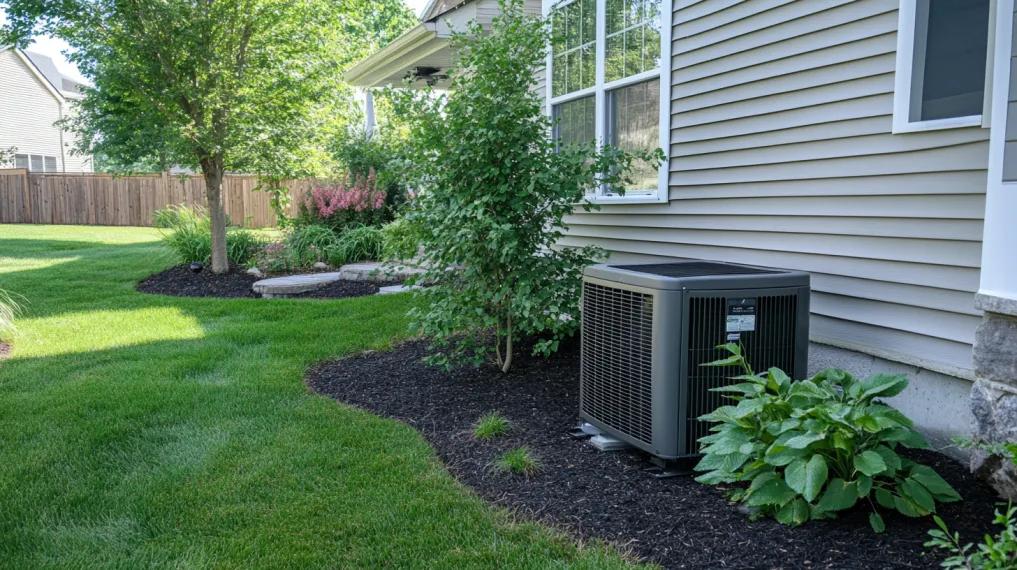A Guide to Heat Pump Repair Costs

Heat pumps are highly efficient, reliable HVAC systems that provide both heating and cooling for year-round comfort. But like any piece of equipment, issues can arise from time to time that require professional attention. A heat pump problem can create a big panic for homeowners worried about the price, but knowing the typical repair costs can help you feel more at ease and budget for any necessary fixes.
HVAC.com covers some of the most common heat pump issues and what you can expect to pay to fix them so you won’t be so shocked when you receive an estimate for your heat pump repair costs.
Average Heat Pump Repair Costs for Common Issues
Here are some of the most common problems homeowners can encounter with heat pump systems, along with general price ranges. Keep in mind, these costs may vary depending on location, brand, parts availability, and labor rates.
1. Refrigerant Leaks
Refrigerant cycles through heat pump systems to transfer heat in and out of your home. Refrigerant leaks can prevent your heat pump from maintaining the right temperature and increase energy costs. Fixing a refrigerant leak typically costs between $200 and $1,000, depending on the severity and location of the leak. Additionally, refilling refrigerant can cost $200 to $500 on top of the repair itself. The costs vary depending on whether your heat pump uses R-22, R-401A, or a newer refrigerant, as well as how many pounds of refrigerant need to be added.
2. Broken Compressor
A heat pump’s compressor pressurizes refrigerant to move it through the system. A broken compressor can stop the unit from working entirely. Compressors are one of the most expensive parts to repair or replace, with average costs ranging from $1,000 to $2,500 for replacement. However, these heat pump repair costs can vary widely based on the heat pump model, size, and refrigerant type.
3. Faulty Reversing Valve
The reversing valve switches the heat pump from heating to cooling mode and changes the direction of refrigerant flow through the system. If it’s faulty, your heat pump may get stuck in one mode. Replacing the reversing valve typically costs $400 to $700. The unit model and how difficult it is to access this component may increase the costs.
4. Capacitor or Contactor Malfunction
Capacitors and contactors are electrical components that help power the compressor and fan in your heat pump. When they fail, your heat pump may not turn on or operate smoothly. Replacing a capacitor or contactor is generally a quick fix, costing around $120 to $250 depending on part prices and labor.
5. Thermostat Issues
Sometimes, a malfunctioning thermostat is behind a heat pump’s poor performance. Thermostat repairs or replacements can vary widely, but they’re usually affordable. Thermostat repairs can range from $50 to $200, while a new thermostat, especially a smart model, may cost $200 to $500 installed. A new manual thermostat will be at the cheaper end, while smart thermostats are the most expensive to install due to the price of the equipment.
6. Blower Motor Problems
The blower motor drives the fan that circulates air through your home. When the motor malfunctions, it may result in low airflow, uneven temperatures, or even complete system failure. Replacing a blower motor typically costs around $450 for standard models, while high-efficiency models like variable-speed blowers can be as much as $1,500. Repairing a motor that isn’t completely broken may be less expensive, around $150 to $400.
7. Defrost Control Malfunction
The defrost control board monitors and controls the defrost cycle, which prevents frost buildup on the outdoor unit during periods of cold weather. If this control malfunctions, it can cause ice to accumulate, which can reduce efficiency, potentially damage components, or lead to a complete lack of heating. A defrost control board costs around $200 to $500 to install. Minor heat pump repair costs are typically less, especially if the issue is with a sensor rather than the entire board.
8. Expansion Valve Issues
The expansion valve regulates the flow of refrigerant through the system. It converts refrigerant from high pressure to low pressure as it moves to the evaporator coil. A malfunctioning valve can disrupt the entire cooling and heating process. Expansion valve replacement costs are generally between $200 and $600.
When to Consider Heat Pump Replacement
If you’re facing repeated repairs or pricey heat pump repair costs, you’ll want to evaluate if it’s time to replace your unit instead of just repairing it. Generally, if the repair cost is more than half the price of a new unit and your current system is over 10–15 years old, a replacement could be the best decision.